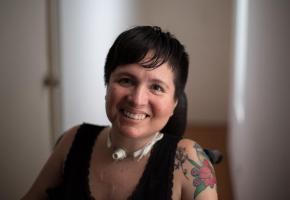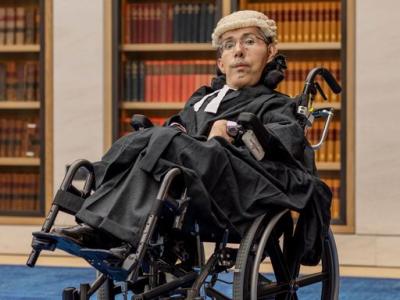When Rafael’s book first landed on my desk, I was sceptical. I have always steered clear of self-help books or lifestyle gurus, who probably secretly have more issues than all of us. But as I flicked through, it drew my attention. Firstly, knowing how difficult it is for foreign-language authors to get published in English, was a sign that he must be pretty good; the Catalan has clinics in Barcelona, Madrid and soon-to-be Mexico and this book in Spanish ‘El arte de no amargarse la vida’ is a best seller in Latin America and Spain, in total his books have sold over 1 million copies.
Secondly, Dr. Santandreu is clearly a highly regarded expert in his field of Cognitive Behavioural Therapy (CBT), which is widely considered by the medical professional to be effective in treating both emotional disorders and addictions. He uses CBT to work on changing negative thoughts into positive ones, thereby helping adjust the way you feel, make better decisions in life and build emotional resilience for every day happiness.
And so I began by asking him, what elements are required to make good decisions?
Rafael Santandreu: To decide well is very important in life, and many people do it very badly, because we are not taught how to make good decisions. I sometimes speak about the ‘two rules’: the first is “I always finish what I start” and the second is “I do what I said I was going to do.” Why are these two rules so important? First because you have to discover life, what you like, what you want to do, but to discover life you have to confront your fears and negative emotions: fear, doubt, shame or other negative emotions.
I’ll give you an example...imagine I say to you, ‘I’m going to live in Sevilla; I always wanted to live in Sevilla because of the sun, the flamenco, the people etc.’ So, I pack my bags, get in the car and set off, but at 500 km I notice that in the back there are some uninvited people who are saying; ’What are you doing! Don’t go! You don’t know anyone there, it will be a failure.’ They are going on, louder and louder, until they are screaming. I decide I can’t go on, so I turn around and go back to Barcelona where I feel better, more settled. But a month goes by and I am watching a documentary on Sevilla and I think, “Oh my God that’s where I want to be, why didn’t I go?” So, again, I pack my car and head off, but this time not at 500km but at 100km the voices come back even louder: “You idiot! Why are going to Sevilla, it’s a huge mistake!” These voices are in fact are our negative emotions and if we pay too much attention to these emotions they grow and what happens? I never discover if I really like Sevilla.
If you finish what you started, at the end you find your way because you discover things, that’s why it’s important to have these rules. But people don’t follow the rules and they don’t find anything, they don’t discover what they want to do, what their capabilities are. They don’t grow, they don’t learn. Any one who follows those rules will feel successfull.
Amaranta Wright: How can you break down your theories and help people now under lockdown? Can you give some practical measures to combat anxiety?
RF: The first thing is to believe that nothing very bad is happening, that all this is very small, so you have to convince yourself of that. The second thing is to believe that you can enjoy yourself a lot, in this time. But it will be in a different way, maybe you can’t go to the gym or go to the mountains to ski, but one of the principles of CBT is that you don’t need very much to be very happy. We only need water and food for the day, if you can find these you can be incredibly happy. You don’t need to go to the gym or ski or go to the park, that’s what you thought you needed. If you free yourself from these stupid ideas, you can have fun in other ways, reading books, knowing your neighbour, even seducing your neighbour..that’s a lot of fun…use your imagination!
AW: Yeah whatever, as long as you wear a mask!
RS: Of course always a mask! But the point is…there are a lot of opportunities. Listen, in my latest book a tell a story of when I visited a jail to give a talk and I met a very happy guy who had discovered happiness in jail. He was very well known in the jail because he was always helping everybody. He told me: ‘I have discovered happiness here in the jail’ and it was the same principles of CBT….
AW: And he managed to do this without the therapy?
RS: By himself, through this experience, he realised he needed very little to be happy, and then he started to enjoy his possibilities in jail. He could help people, make music, study, he could do a lot of things, so imagine if you can discover happines in jail, why not with COVID?
AW: Yes I liked that in your book, your argument that however bad your situation is and you can still find meaningful things to do and lead a meaningful life…
RS: Exactly, Everything is in your mind. If you stop complaining and look for nice opportunities, that’s it! What happens is that we often do the opposite; we complain all the time and then we don’t see opportunities to do nice things, we do that all the time…
AW: Yes, the only thing I thought was that… in your books you seem to get a lot of patients suffering from broken hearts, and I was thinking… if everyone took up your cure, the great love songs of the world would never have been written!?
RS: Indeed, love songs are very silly. It’s incredible how society teaches us so badly. Put on the radio...any time of the day and surely there will be a love song, because most of them are love songs and most of them are neurotic love songs…because most of them say things like ‘without you I’m dying’ and every time I hear lyrics like this I think ‘what’s wrong with you? only because of this you are dying?! You crazy?' You can be an artist and write about many things but not about drama, stupid drama.’
AW: OK, I can see you don’t like drama, but I guess in many people’s lives there is real drama and a lot of anxiety right?
RS: It’s true, yes, that every day there are more psychological problems, there is more depression, more anxiety, all of them are growing. Why? because life is more difficult every day; if you compare the pressure that we have now and the pressure our grandparents had, the difference is unbelievable. Nowadays, to be a decent person we need to be thin, in shape, to have studies, to have friends, to have a nice flat, to know languages, to be well informed, to be smart and stylish and if you fail in one of those things, you’re a loser, a failure. Every day, society demands more from us, and we don’t realise it even, because it happens very gradually and it seems that most people are in agreement with this pressure…
AW: So, really it’s about retraining the brain, that’s your job…
RS: Exactly…the belief system, because all that pressure is imaginary. In reality, I don’t need to be thin, to have a flat, to be successfull or to have security. Society tells me I need this, but I don’t believe it, so I’m free. What is important then in life? To be alive, to have food, to have water, being able to love, the rest doesn’t matter, it doesn’t matter if you have a house, a job, that’s not important for happiness, we believe that it’s important because society tells us so, constantly giving us a lot of demands, crazy demands, but if you take the demands off you, you’ll feel much better.
Hear Rafael in our podcast
'Shake It Off' is available at https://www.waterstones.com/book/shake-it-off/rafael-santandreu/9781839…


















